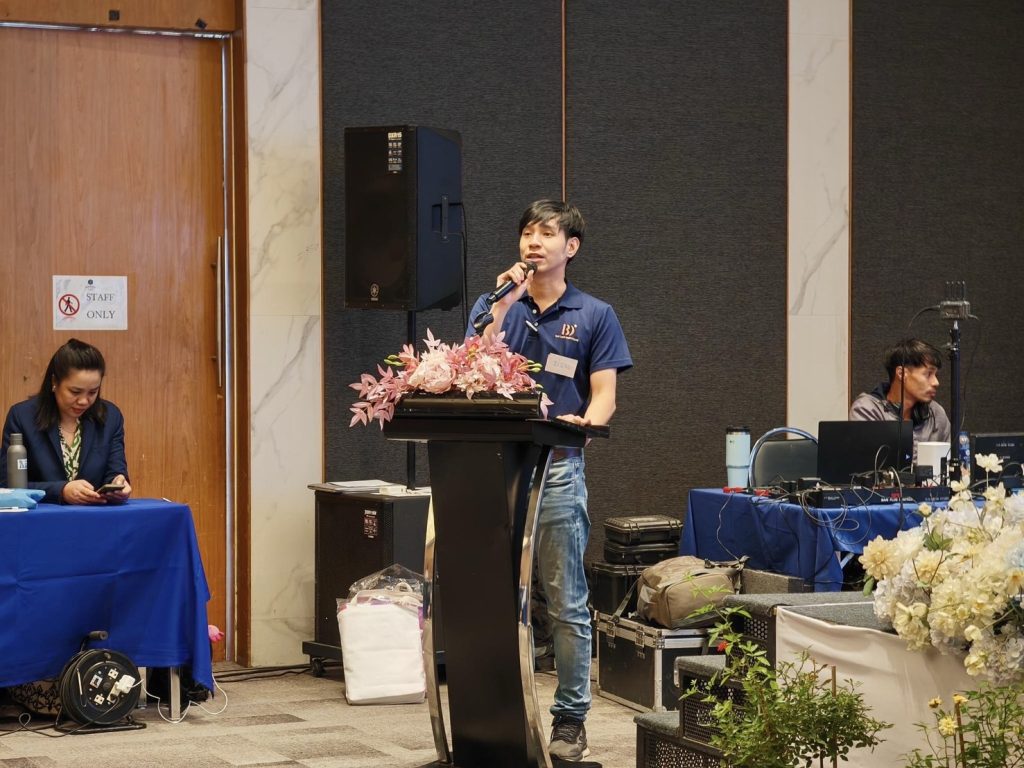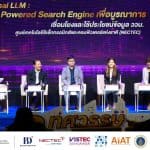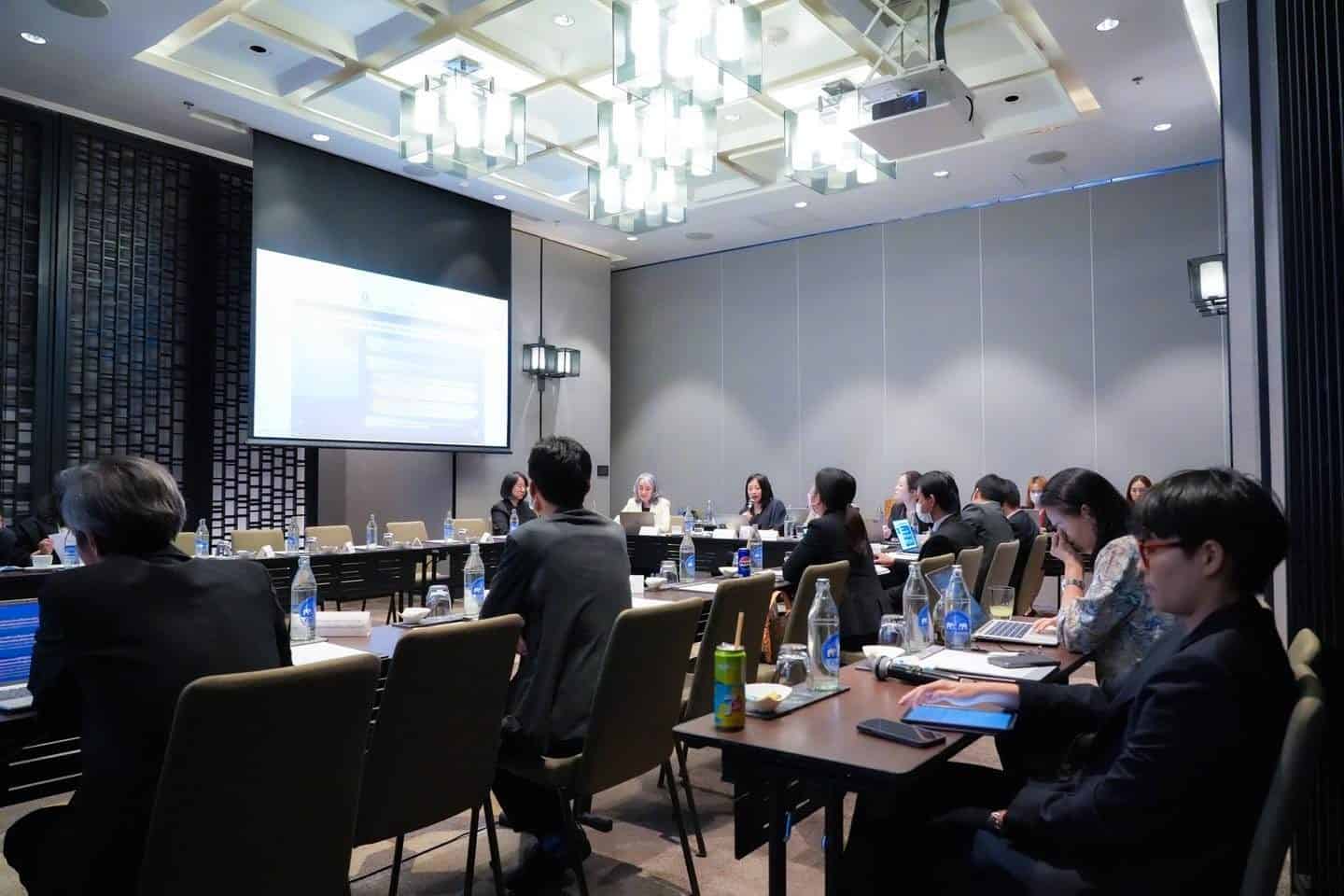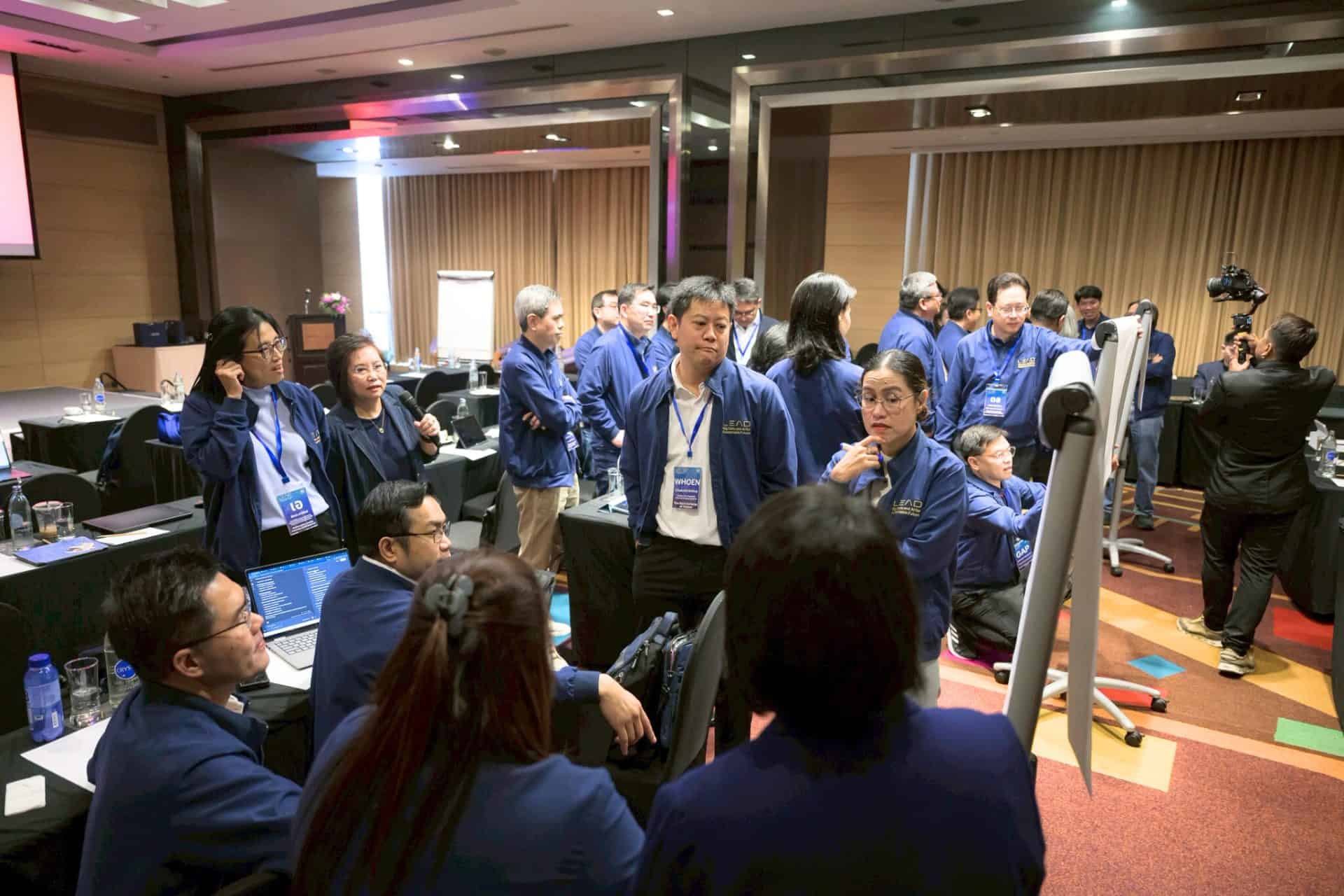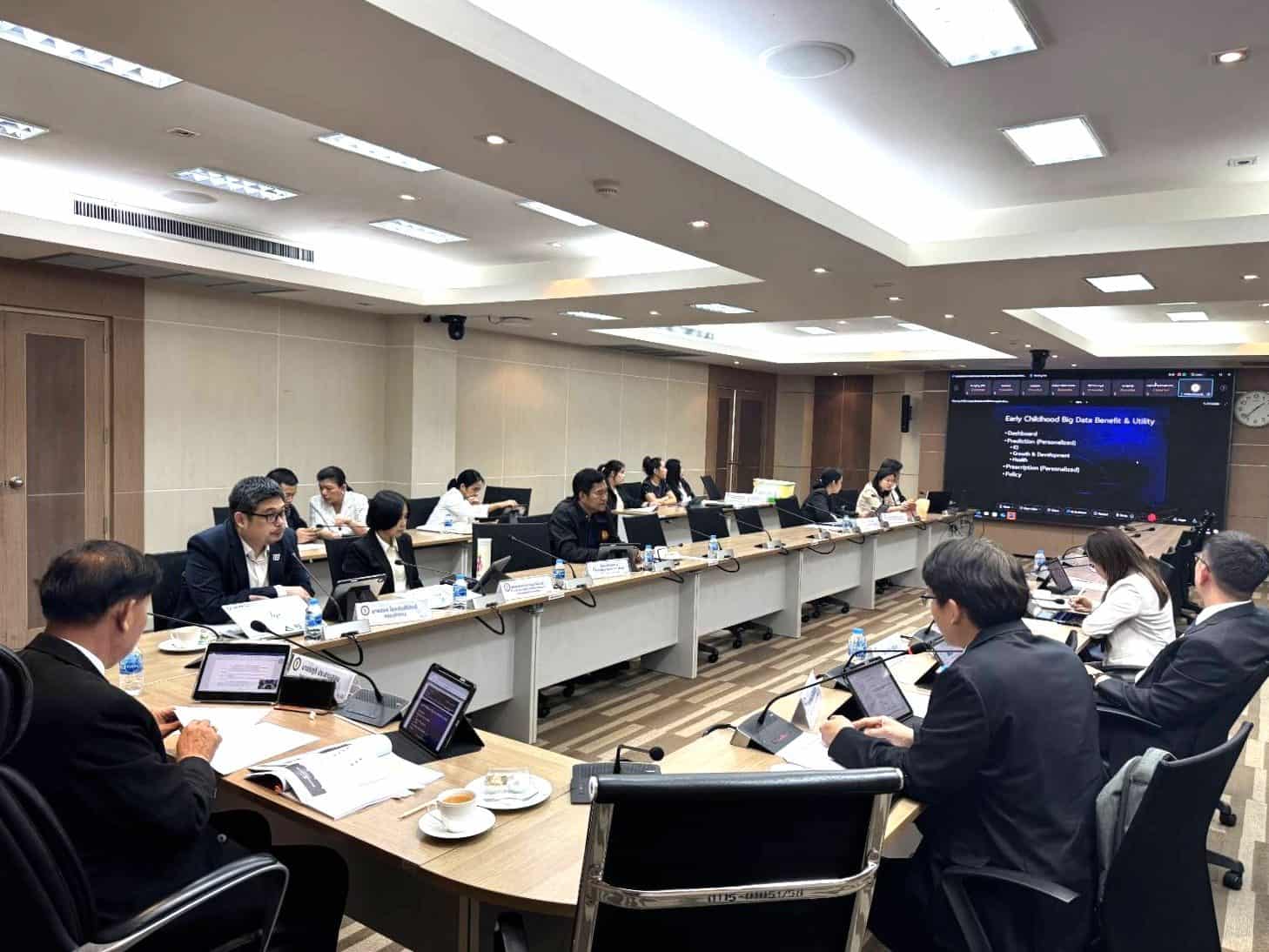สถาบันข้อมูลขนาดใหญ่ (องค์การมหาชน) หรือ BDI นำโดย ดร.พีรดล สามะศิริ ผู้จัดการโครงการและนักวิทยาศาสตร์ข้อมูลอาวุโส ฝ่ายบริการวิเคราะห์ข้อมูล พร้อมด้วย ดร.ศรัณธร ภู่สิงห์ นักวิทยาศาสตร์ข้อมูลอาวุโส และทีมนักวิจัย โครงการพัฒนาระบบบัญชีข้อมูล และต้นแบบการบูรณาการและใช้ประโยชน์ข้อมูลเพื่อสนับสนุนการบริหารจัดการปัญหาฝุ่น PM 2.5 นำเสนอภาพรวมโครงการ และภาพรวมแผนโครงการพัฒนาระบบบัญชีข้อมูลและต้นแบบการบูรณาการและใช้ประโยชน์ข้อมูลเพื่อสนับสนุนการบริหารจัดการปัญหาฝุ่น PM 2.5 ในงานประชุมเชิงปฏิบัติการ “การจัดทำแผนเพื่อการแก้ปัญหาฝุ่น PM 2.5 ระยะ 5 ปี ของจังหวัดเชียงใหม่ด้วยงานวิจัย นวัตกรรม และกลไกภาคี PES (Payment for Ecosystem Service)” ซึ่งจัดขึ้นโดย สำนักงานคณะกรรมการส่งเสริมวิทยาศาสตร์ วิจัยและนวัตกรรม กองทุนส่งเสริมวิทยาศาสตร์วิจัยและนวัตกรรม (กองทุน ววน.) ทั้งนี้ มีนายนิรัตน์ พงษ์สิทธิถาวร ผู้ว่าราชการจังหวัดเชียงใหม่ เป็นประธานเปิดการประชุม นายทศพล เผื่อนอุดม ผู้ตรวจราชการกระทรวงมหาดไทย นายศิวกร บัวป้อง รองผู้ว่าราชการจังหวัดเชียงใหม่ ศ. ดร.สมปอง คล้ายหนองสรวง ผู้อำนวยการ สกสว. และผู้แทนจากหน่วยงานที่เกี่ยวข้องจากหน่วยงานส่วนกลางและระดับพื้นที่ ตลอดจนนักวิจัย และผู้เชี่ยวชาญจากหน่วยงาน ววน. สถาบันการศึกษา และหน่วยงานวิจัยที่เกี่ยวข้อง เข้าร่วมประชุม หารือ และแลกเปลี่ยนความคิดเห็นร่วมกันกว่า 200 คน ณ ห้อง Convention Hall โรงแรมวินทรี ซิตี้ รีสอร์ท จ.เชียงใหม่ เมื่อวันที่ 13-14 มกราคม 2568
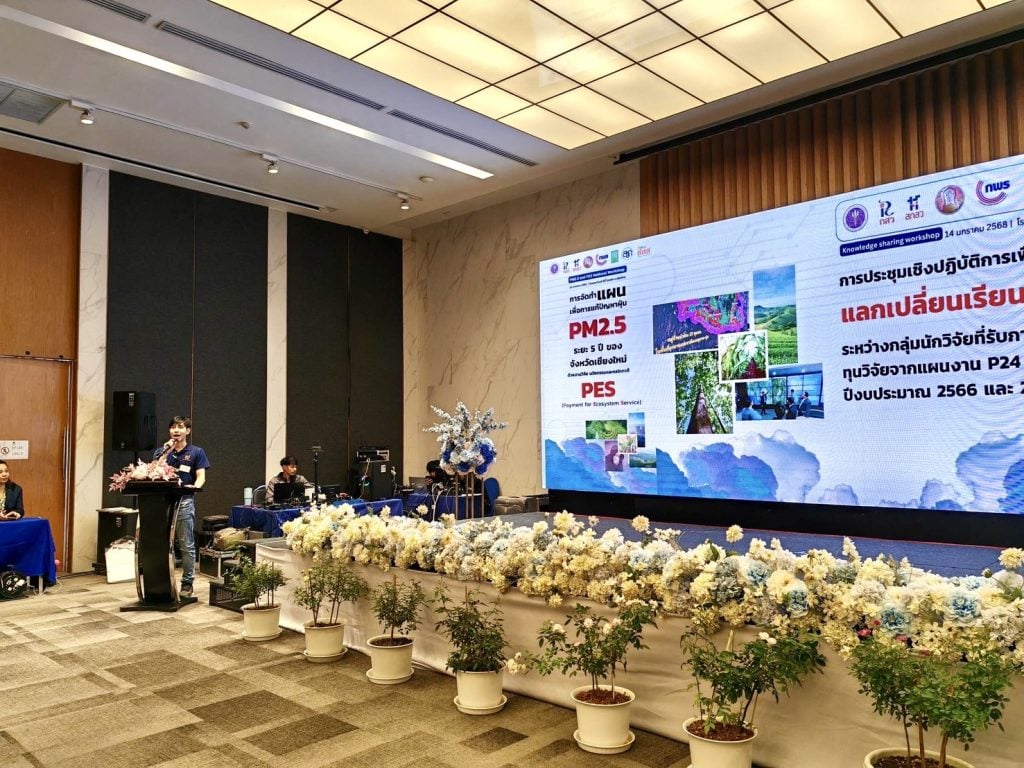
โครงการพัฒนาระบบบัญชีข้อมูลและต้นแบบการบูรณาการและใช้ประโยชน์ข้อมูลเพื่อสนับสนุนการบริหารจัดการปัญหาฝุ่น PM 2.5 เป็นการดำเนินงานร่วมกันระหว่าง สถาบันข้อมูลขนาดใหญ่ (องค์การมหาชน) สำนักงานพัฒนาเทคโนโลยีอวกาศและภูมิสารสนเทศ (องค์การมหาชน) สถาบันวิจัยวิทยาศาสตร์และเทคโนโลยีแห่งประเทศไทย (วว.) สถาบันวิจัยและพัฒนาพื้นที่สูง (องค์การมหาชน) และมหาวิทยาลัยเชียงใหม่ อันเป็นส่วนหนึ่งของแผนงานระบบข้อมูลแบบบูรณาการ ภายใต้แผนด้านวิทยาศาสตร์ วิจัยและนวัตกรรม (ววน.) ของประเทศ พ.ศ.2566-2570 แผนงาน P24 แก้ไขปัญหาและตอบสนองภาวะวิกฤตเร่งด่วนของประเทศ
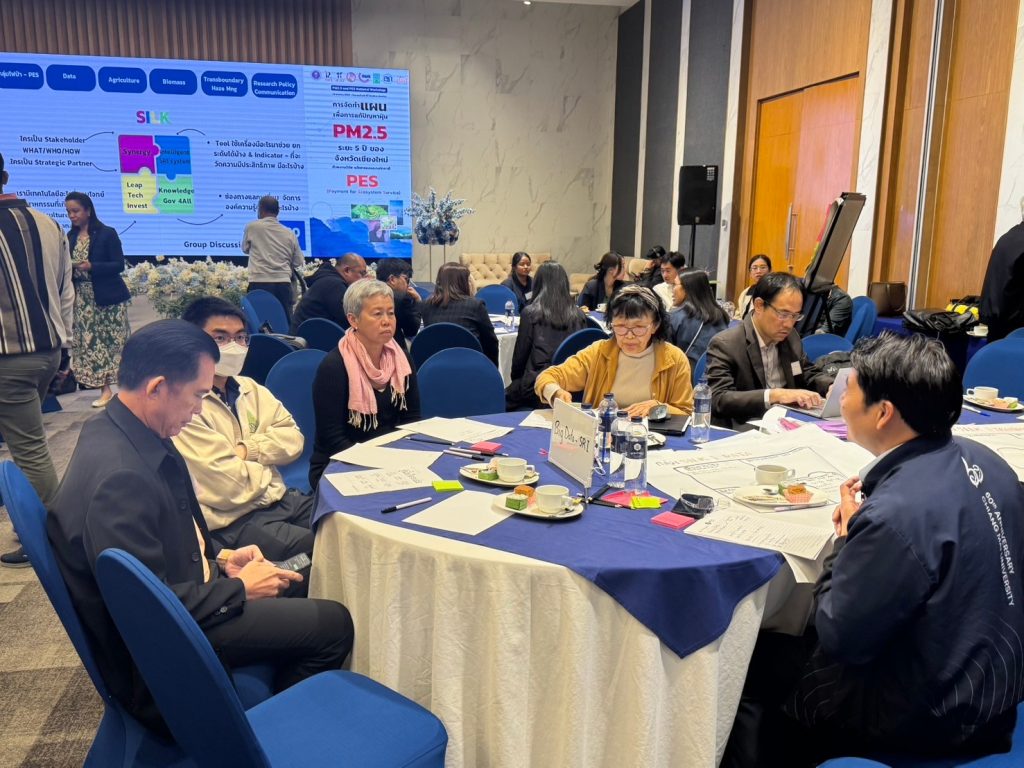
ภายในการประชุมเชิงปฏิบัติการครั้งนี้ ทีมนักวิจัย BDI ได้นำเสนอความคืบหน้าโครงการ ซึ่งมีเป้าหมายในการจัดทำระบบบัญชีข้อมูล ทั้งส่วนกลางและระดับพื้นที่ พร้อมพัฒนาฐานข้อมูลกลางและแพลตฟอร์มฐานข้อมูลที่จำเป็นต่อการวิเคราะห์ปัญหาฝุ่นละอองขนาดเล็ก รวมทั้งการพัฒนาต้นแบบแดชบอร์ดที่เชื่อมโยงข้อมูลขนาดใหญ่ของประเทศ ข้อมูลพื้นที่ในระดับชุมชนเพื่อช่วยสนับสนุนการตัดสินใจของผู้บริหาร และผู้ที่เกี่ยวข้อง พร้อมร่วมแลกเปลี่ยนเรียนรู้ ปัญหาและอุปสรรคในการดำเนินงานที่ผ่านมา
นอกจากนี้ ยังได้ร่วมระดมสมองออกแบบแนวทางการขยายผลการดำเนินงานในปีที่ผ่านมาไปสู่พื้นที่ต่างๆ เพิ่มเติม ตลอดจนการระดมความเห็นเพื่อจัดทำโรดแม็ปการนำองค์ความรู้และงานวิจัยพร้อมใช้ในประเด็นสำคัญเร่งด่วนมาใช้ในการแก้ปัญหาฝุ่นละออง PM 2.5 จากแหล่งกำเนิด และเตรียมความพร้อมในการถ่ายทอดเทคโนโลยีและนวัตกรรมเพื่อเชื่อมต่อกับแผนปฏิบัติการของหน่วยงานระดับจังหวัด เพื่อผลักดันการนำผลงานวิทยาศาสตร์ วิจัย และนวัตกรรมไปใช้ประโยชน์อย่างเป็นรูปธรรม
Public Relations and Communication Specialist
Big Data Institute (Public Organization), BDI
- Narisara Boonsrihttps://bdi.or.th/en/author/narisara-bo/
- Narisara Boonsrihttps://bdi.or.th/en/author/narisara-bo/
- Narisara Boonsrihttps://bdi.or.th/en/author/narisara-bo/
- Narisara Boonsrihttps://bdi.or.th/en/author/narisara-bo/


